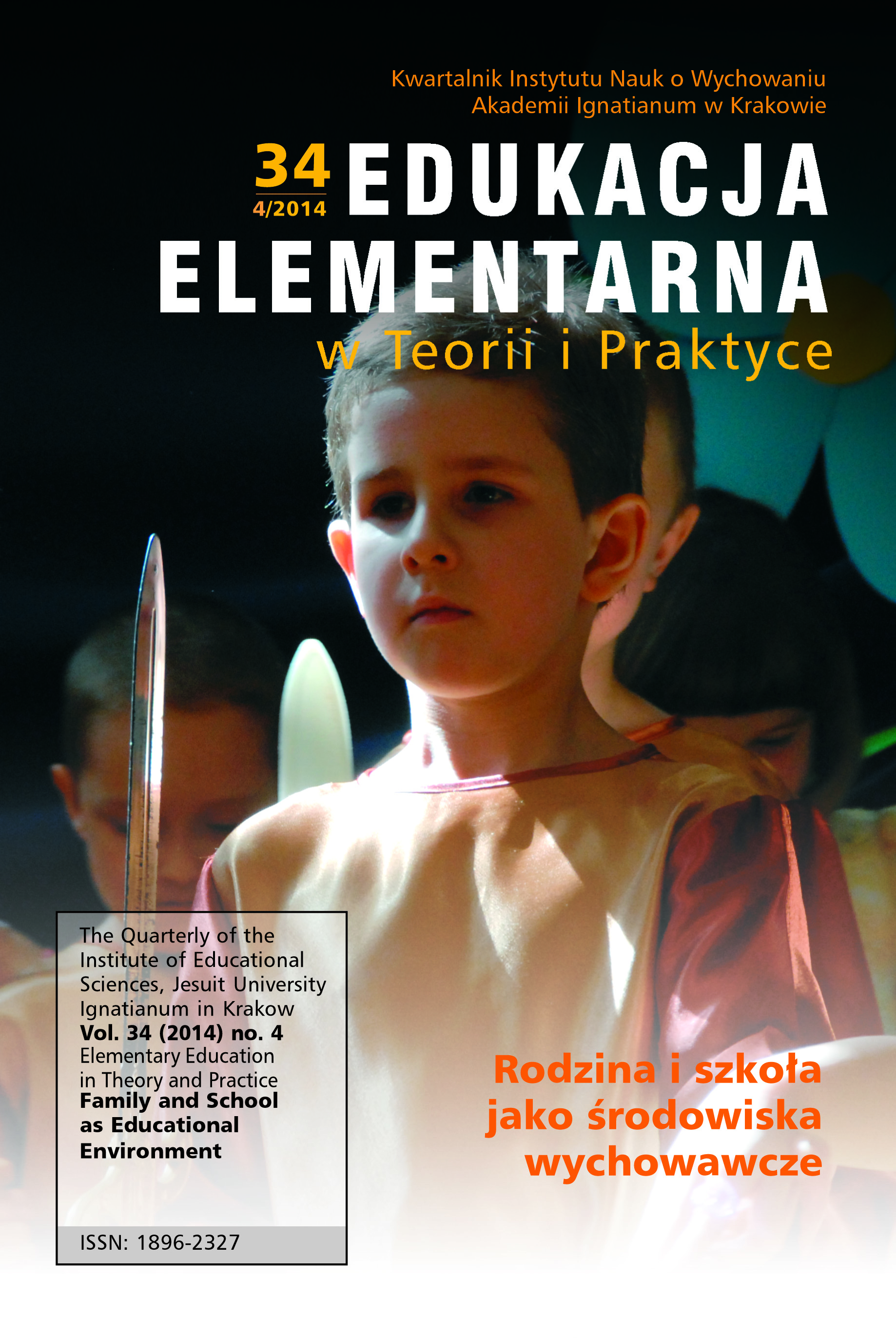Geneza relacji i współpracy rodziny i szkoły w polskiej myśli pedagogicznej oraz praktyce edukacyjnej od XIX do połowy XX wieku
The Origins of the Relations and Cooperation between Family and School in Polish Pedagogical Thought and Educational Practice from the 19th to the Mid-20th Centuries
Author(s): Krzysztof JakubiakSubject(s): History, Social Sciences, Education, Social history
Published by: Uniwersytet Ignatianum w Krakowie
Keywords: family; school; educational environment;child;
Summary/Abstract: From the late 1980s, when an apparently long-lasting and difficult process of democratisation and humanisation of life began, people increasingly expected to see deep transformations occur, that would be relevant to their ambitions and aspirations. In the field of education, there were some efforts aimed at rendering schools – together with the various processes and pedagogical relations they involve – more communal. Two conceptions were formed: namely, that of giving them autonomy, and that of establishing relations of communality between what are, in effect, two educational entities – the school itself, and the family. In this context, both in the educational theory and in practice, there reappear certain tendencies towards the transformation of the model of family and school relations. But the model still suffers from imperfections and defects. These tendencies are accompanied by an awareness that, in the attempt to create new, democratized and humanized family and school relations, it is necessary not only to regard contemporary times critically, but also to combine in an effective manner the various threads pertaining to the historical development of these relations that were lost during the interwar period. Research into the history of pedagogical thought and work is significant not only in terms of broadening our knowledge about the past, but also because it may contribute to more effectively resolving contemporary pedagogical problems – not only through imitation, but also thanks to a more mature and comprehensive approach to reflection. Driven by this conviction, an answer was sought to the question to what extent the issue of relations between family and school was present in the history of Polish pedagogy, and what demands and solutions were suggested and applied in this field. In Poland of the interwar period, there were numerous initiatives aimed at enhancing the development of relations between family and school. There was a noticeable increase in the activities of nation-wide and local family associations. Family and school became closer than ever before. In particular, the scope of the various forms taken by their cooperation expanded. The outbreak of World War II changed things dramatically. In the first years after its end, it became clear that this development was impossible to continue. The new social and institutional system determined a different model of relations. These relations were subjected to ideologization and politicization. They came under a centralized school-system authority, administered by educational politicians and subordinated to the regulations of the new educational law. Although certainly an unequal partner of schools, in the first decade of the Polish People’s Republic families proved themselves capable of constituting an environment immune to indoctrination and manipulation. That is why the pedagogical value of the family can be seen as once more furnishing us with an opportunity “to weave the threads of cooperation torn after the war”.
Journal: Edukacja Elementarna w Teorii i Praktyce
- Issue Year: 9/2014
- Issue No: 4 (34)
- Page Range: 27-52
- Page Count: 26
- Language: Polish

